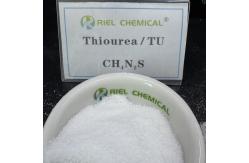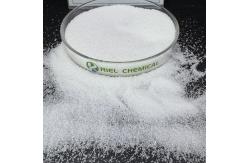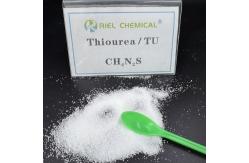Cas62-56-6 CH4N2S Thiocarbamide White Crystal Particle For Metal
|
|
Cas62-56-6 CH4N2S Thiocarbamide White Crystal Particle For Metal
Key attributes
1.Metalworking and surface treatment gold plating and other precious metals to improve the gloss and adhesion of the coating. Metal corrosion inhibitor: During pickling and rust removal, thiourea is used as a corrosion inhibitor to protect metal surfaces from excessive corrosion. 2. Ore flotation and metallurgy especially in the flotation process of copper, lead, zinc and other sulfide ores to improve metal recovery. Precious metal extraction: thiourea can be used as a leaching agent for the extraction of precious metals such as gold and silver, replacing the traditional cyanide method to reduce environmental pollution. 3. Chemical and Materials Science to improve its heat resistance, mechanical properties and processing properties. Plastic additives: as antioxidants or stabilizers, extend the service life of plastic products. Functional materials: thiourea can be used to synthesize functional materials with special optical, electrical or magnetic properties. 4. Environmental protection and resource recycling to remove heavy metal ions (such as mercury, cadmium, lead, etc.) from wastewater by forming stable complex precipitation. Exhaust gas purification: thiourea can be used to remove sulfur dioxide (SO₂) and nitrogen oxides (NOₓ) from industrial exhaust gases. Battery recycling: In the recycling process of used batteries, thiourea is used to extract valuable metals such as cobalt and nickel. 5. Medicine and Biotechnology antiviral and anticancer drugs. Protein research: Thiourea is used for denaturation and renaturation of proteins and has important applications in biotechnology and life sciences. 6. Agriculture and food industry and may become a new growth regulator in the agricultural field. Food preservative: Thiourea is used as an antioxidant and preservative to keep food fresh and extend shelf life. 7. Photography and video technology and white photos to speed up the development reaction and improve the image quality. 8. Laboratory and scientific research Crystal growth: Thiourea is used as a solvent or additive in crystal growth experiments to regulate crystal morphology and size. 9. New energy and sustainable development and discharge performance and cycle life of batteries, and has broad application prospects in lithium-ion batteries, fuel cells and other fields. Hydrogen energy storage: thiourea and its derivatives show potential in the research of hydrogen energy storage materials. 10. Other applications Preparation of nanomaterials: thiourea, as a reducing agent or template agent, plays an important role in the preparation of nanomaterials.
1. Environmental protection and may be more widely used in industrial wastewater treatment in the future. Waste gas purification: thiourea can be used to remove sulfur dioxide (SO₂) and nitrogen oxides (NOₓ) in industrial waste gas, helping air pollution control. Green chemistry: With the increasingly stringent environmental regulations, thiourea, as an environmentally friendly reagent, may play a greater role in green chemical processes. 2. New energy and discharge performance and cycle life of batteries, and has broad application prospects in lithium-ion batteries, fuel cells and other fields in the future. Hydrogen energy storage: thiourea and its derivatives show potential in the research of hydrogen energy storage materials and may become an important part of the hydrogen energy economy. 3. Medicine and Biotechnology and development, and may become a key component of new anticancer drugs in the future. Protein research: The application of thiourea in the study of protein denaturation and renaturation may drive further development in the field of biotechnology and life sciences. 4. Agriculture and food industry and yield may make it a novel growth regulator in agriculture. Food preservatives: thiourea, as an antioxidant and preservative, may find more applications in the future in food preservation and extending shelf life. 5. New material development plays an important role in the preparation of nanomaterials and may promote the development of functional nanomaterials in the future. Functional materials: thiourea can be used to synthesize materials with special optical, electrical or magnetic properties for applications in electronics, energy and other fields. 6. Chemical and Manufacturing Industries and precious metal extraction may further improve the efficiency of resource utilization. Resin and plastic modification: The use of thiourea in resin and plastic modification may lead to the development of high-performance materials. 7. Laboratory and scientific research and organic compound analysis may promote the development of analytical chemistry techniques. Crystal growth: The application of thiourea in crystal growth experiments may promote the study of optical and electronic materials. 8. Sustainable development and resource reuse may promote the development of circular economy. Cleaner production: The optimization and greening of the thiourea production process may reduce the environmental impact of chemical production. |
|||||||||||||||||||||||||||||||||||||||
| Product Tags: ch4n2s thiocarbamide thiocarbamide white ch4n2s thiourea | |||||||||||||||||||||||||||||||||||||||
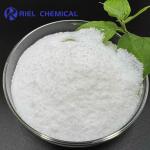
|
CAS 62 56 6 Thiourea 99 Crystal For Electroplating Additive |
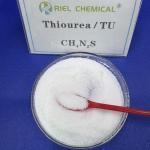
|
99% Industrial Grade Thiourea Crystal For Industrial Raw Materials |
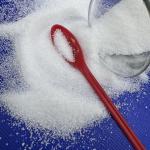
|
CH4N2S Highly Purified Sulfourea For Gold Plating Tin Plating Solution |
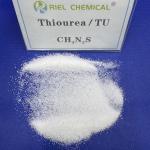
|
White Crystal Particle Thiourea For Chemical Materials Cas 62-56-6 ≥99.0% |
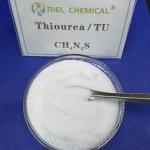
|
High Purity Crystallization Thiourea 99% Anhydrous Electroplating First Choice |
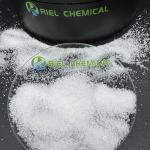
|
Industrial Grade Anhydrous Thiourea 99% Ultra Low Moisture Content ≤0.1% |

